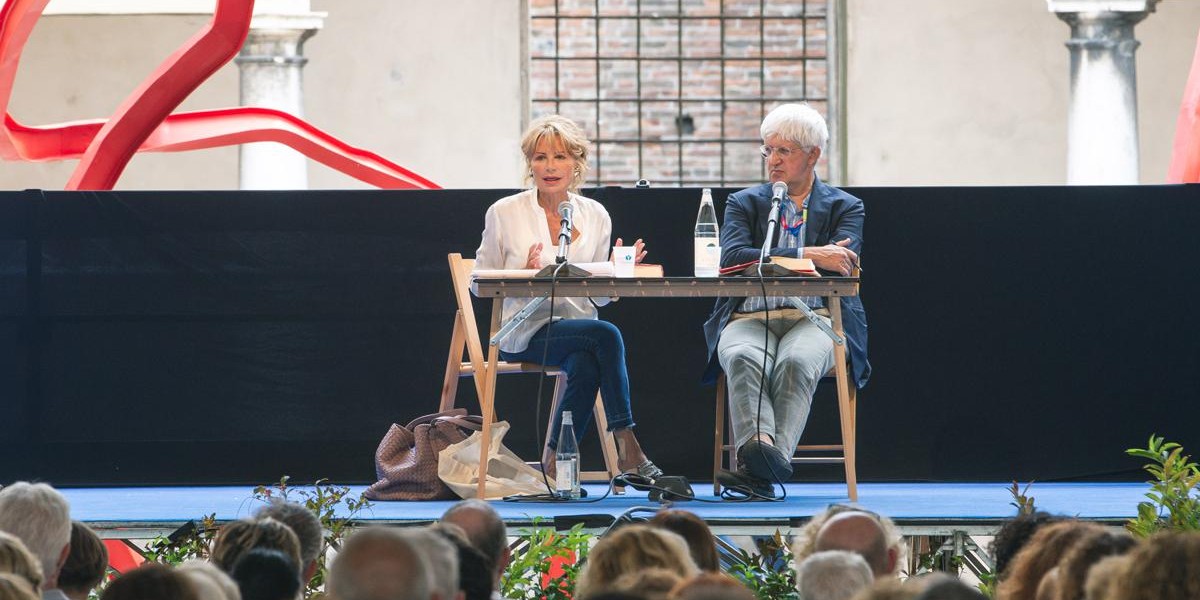
A tête-à-tête between Lilli Gruber and Beppe Severgnini
“Writing my last book allowed me to reflect on the post-war situation in South Tyrol, to document history and most of all to investigate the psychology of the period and reflect on the issues around the Brenner border.”
This is how Lilli Gruber, attending Festivaletteratura for the first time, introduces her book Inganno, the result of intense and careful research on the strategic importance of South Tyrol during the Cold War. This wasn’t easy, as the author spoke about the desire in South Tyrol to preserve the beauty of the region and protect citizens from a difficult border situation.
Lilli Gruber recalls how, in 1947, the Brenner became a crucial region in the sensitive post-war period, with the threat of a Russian invasion of a Europe already torn apart by the Second World War. The South Tyrolean economy was destroyed by war and there was intense anger on the part of farmer and artisans in the face of forced Italianisation, given that the failure of the Italian state to safeguard agreed-upon measures for South Tyrol following its annexation.
This situation turned out to be a perfect proving ground for the emergence of terrorist groups, made up of ex-soldiers with the aim of damaging the Italian state. The United States, with the support of the Italian government, responded to this provocation with the militarisation of the area with over 20,000 troops being moved there. Lilli Gruber uses this historical situation as the backdrop for the stories of Max, Peter and Klara, who are full of ideas and keen to change the situation in South Tyrol but come to discover that violence is the only solution to change. Through this combination of historical facts and fictional characters, Gruber invites her readers to reflect on the dangers of youth radicalisation, blinded by frustration and anger towards a political system that doesn’t keep its promises. In a Europe where nationalists seek to weaken democracies to favour economically strong states and regions, Gruber recalls that one of the founding principles of Europe itself is the defence of human rights, while intolerance, racism and violence are the wrong answers to a “European solution”, a danger on which we need to reflect if we really want to change the present and future of the Union.



